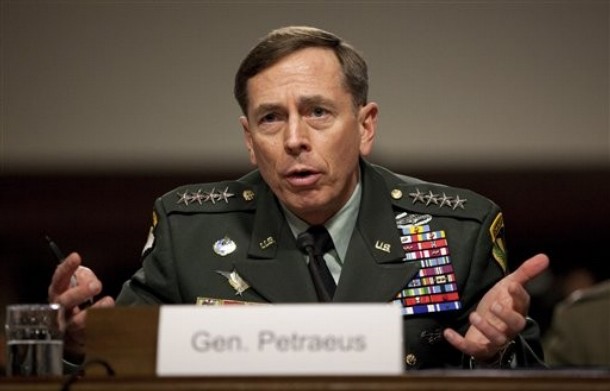
In the midst of testimony before the Senate Armed Services Committee defending the progress of the mission in Afghanistan, General David Petraeus fainted. Thankfully, he appears to be fine. Alas, the symbolism was powerful.
The 57-year-old chief of Central Command apparently was suffering from a combination of a brutal schedule, too little food and drink, and hot lights. The eight-year-old operation in Afghanistan has far more serious problems and time and patience seem to be running out.
Both Carl Levin and John McCain, the Democratic chairman and Republican ranking member of the committee, expressed serious doubts about whether the job was getting done and about the value of the rapidly approaching July 2011 deadline.
“In a perfect world, Mr. Chairman, we have to be very careful with timelines,” General Petraeus said.
Mr. Levin pressed. “Do I take that to be a qualified yes, a qualified no or just a non-answer?” the senator asked.
“A qualified yes, Mr. Chairman,” General Petraeus replied.
Senator McCain was more direct. “I continue to worry a great deal about the message we are sending in the region, about whether we’re actually going to stay or not and whether we’re going to do what’s necessary to succeed, rather than set an arbitrary timeline,” he said.
This is when Petraeus had his episode. He soon recovered and, after a short break, had the good humor to assure the Committee that it was dehydration, not McCain’s question, that caused it. Levin nonetheless exercised the sound judgment to suspend questioning for the day.
Earlier in the questioning, several senators made their frustrations known.
“What is disturbing and hard to comprehend is that the training mission still does not have enough trainers to process all the Afghan recruits who are signing up to join in the security forces,” Mr. Levin said.
I sat in on a briefing this morning with Dr. Jack Kem, the Deputy to the Commander, NATO Training Mission-Afghanistan, on the forthcoming Afghan Defense University. It’s an impressive project and by all indications being done the right way, with Afghans training Afghans and modeled on the best practices of American and other NATO professional military education programs. But it’s about seven years too late.
More importantly, it’s more clear than ever that our partners in the Afghan government are not up to the job. Corruption is rampant and Hamid Karzai is hedging his bets, based on the not unreasonable presumption that his Western allies won’t be there forever. Indeed, most NATO countries have already left or announced their imminent departure. And even the Senate Armed Services Committee seems to be taking President Obama’s July 2011 deadline as an exit strategy, despite assurances to the contrary.
Given the lack of progress on the ground in establishing a functioning democracy and public support in NATO countries that was fading long before the present financial crisis made justification much more difficult, it’s hard to see this turning around in time. Most counterinsurgency experts put the window for successful operations in the range of 12 to 30 years and nobody seriously thinks we have the political will to reach even the front edge of that. And we’ve never had anything close to the number of troops that Petraeus’ own manual says is necessary for a country the size of Afghanistan.
Don Snow has suggested an Aiken solution, referencing the old "declare victory and go home" line from Vietnam. American Security Project senior fellow and Atlantic Council contributing editor Bernard Finel suggests that we’ve in fact achieved victory but are blinded to the fact by wildly absurd goals.
[T]he surge in Afghanistan has worked out as well as anyone could reasonably hope. This is what success looks like. Accept it and understand the limitations on what we can accomplish.
The idea that responsive “government in a box” would be established quickly in clear areas, or that Afghan security forces would be able to backfill American forces to provide durable security, or that the Afghans (particularly Pashtuns) would spontaneously coalesce against the insurgency… that was all fantasy world stuff.
Forgot about good government. Forget about electricity in Kandahar. Forget especially about fantasies about mineral wealth. Focus instead what can be achieved instrumentally through the use of force. We can clear insurgent, prevent them from institutionalizing their power, and generally keep them on the run. That is valuable. Translating that into a desirable political outcome is tricky. But the fact is that our biggest problem in developing a coherent Afghan strategy is the continued influence of people who have no interest in reality and are instead wedded to trying implement ahistorical and strategically incoherent concepts about how to defeat insurgencies.
That’s not exactly the stuff of rousing presidential speeches and the history books. But, alas, it’s quite likely right.
James Joyner is managing editor of the Atlantic Council. AP Photo.
Image: petraeus-testimony-faints.jpg
